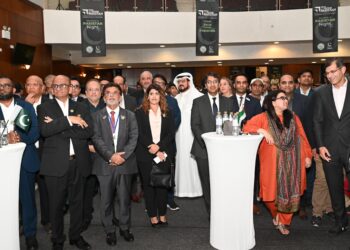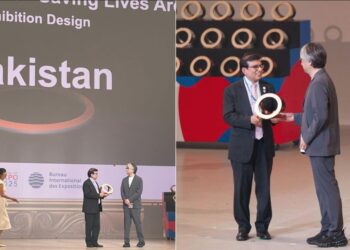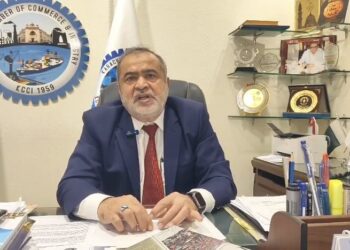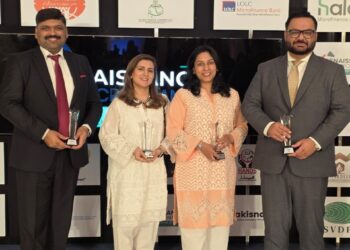Featured a discussion session, an art competition
and a cultural evening, celebrating linguistic
diversity and the importance of mother tongues
Staff Reporter
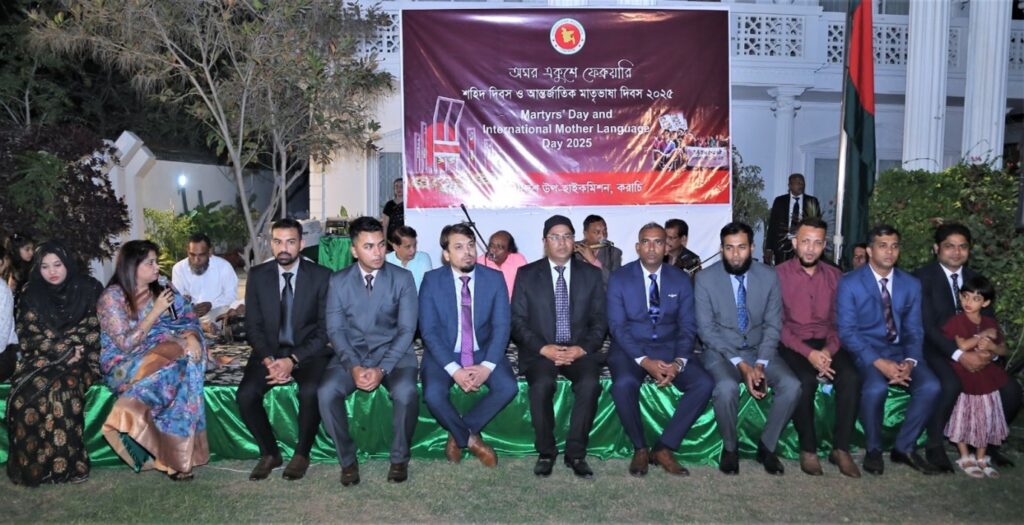
Karachi: The Bangladesh Deputy High Commission in Karachi marked UNESCO International Mother Language Day 2025 with a series of cultural and educational events at the Chancery on February 21. The observance featured a discussion session, an art competition, and a cultural evening, celebrating linguistic diversity and the importance of mother tongues.
The event drew participation from diplomats, government officials, UN representatives, journalists, business leaders, academics, cultural activists, children, and women, all of whom enjoyed an evening of artistic and intellectual engagement.

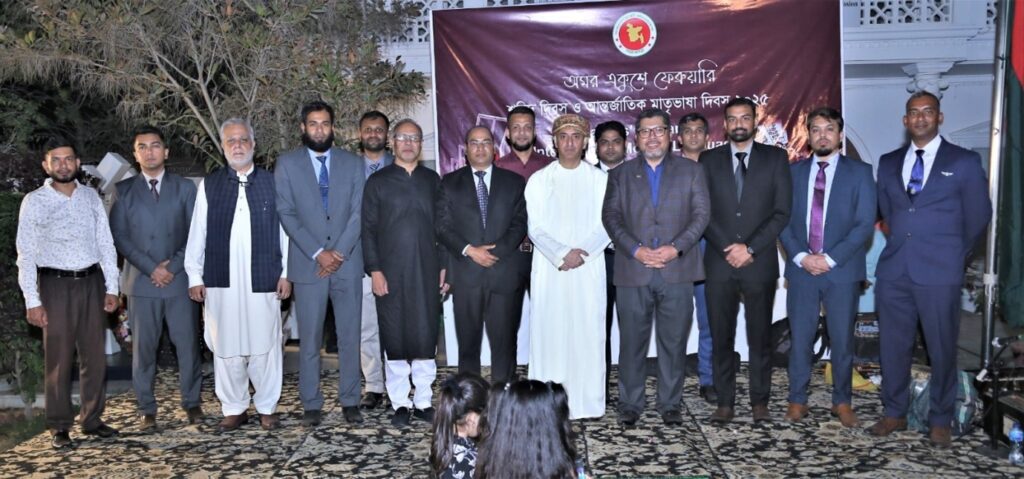
UNESCO’s Silver Jubilee Celebration
This year marks the 25th anniversary of International Mother Language Day, an initiative first proclaimed by UNESCO and later adopted by the UN General Assembly. The observance underscores the importance of preserving linguistic diversity, promoting mother tongues, and safeguarding cultural heritage.
With 8,324 languages spoken worldwide, many are at risk of extinction due to globalization and societal changes. UNESCO stresses that multilingual education, especially for minority and indigenous languages, plays a vital role in fostering inclusive societies, improving education outcomes, and preserving cultural identities.

The Urgency to Protect Endangered Languages
UNESCO warns that a language disappears every two weeks, taking with it an entire cultural and intellectual heritage. While around 7,000 languages remain in use, only a fraction are integrated into education systems and public domains, and fewer than 100 languages are actively used in the digital world.
By advocating for multilingualism and linguistic diversity, UNESCO aims to bridge educational gaps, strengthen cultural identities, and promote global unity.

Commitment to Cultural Cooperation
The Bangladesh Deputy High Commission in Karachi continues to play a pivotal role in fostering cultural exchange and people-to-people connectivity. Through such initiatives, the mission reinforces the value of language in education, communication, and sustainable development.


